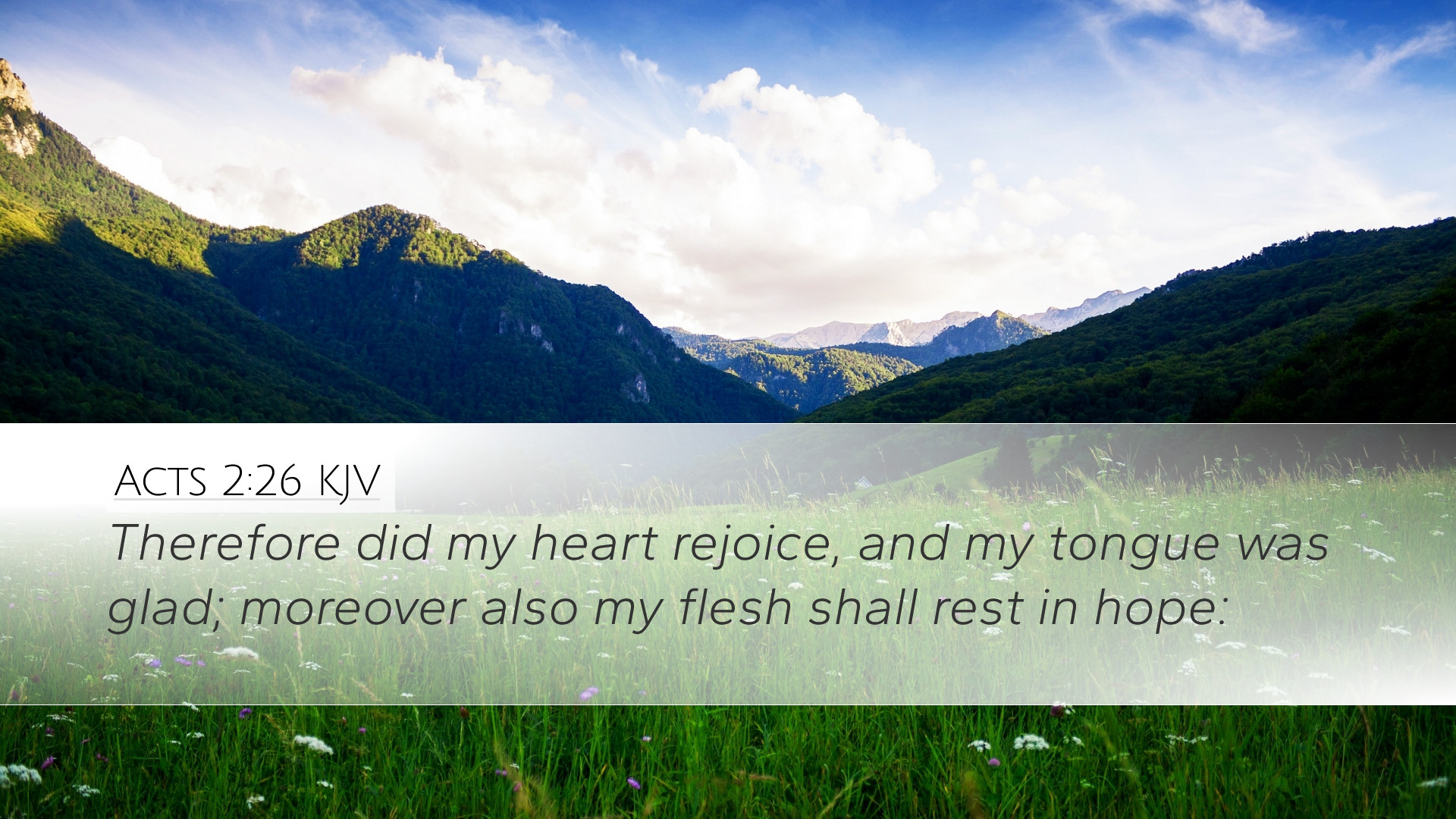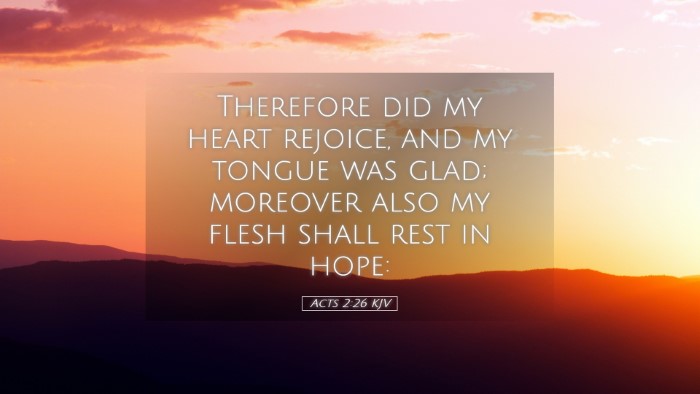Commentary on Acts 2:26
Acts 2:26 states, "Therefore my heart is glad, and my tongue rejoiced; my flesh also will dwell in hope." This verse is a quotation from Psalm 16:9, which Peter employs to articulate a pivotal truth about the resurrection of Christ and the assurance believers find in Him. In this commentary, we will explore the multifaceted insights derived from this verse, drawing from the wisdom of esteemed commentators such as Matthew Henry, Albert Barnes, and Adam Clarke.
Contextual Background
The Acts of the Apostles documents the early church’s growth and the work of the Holy Spirit. Chapter 2 describes the day of Pentecost, when the Holy Spirit descended upon the apostles. Peter’s sermon represents a powerful moment of proclamation, wherein he declares Jesus as both Lord and Christ. Acts 2:26 is situated within a larger argument, as Peter interprets the events occurring before the crowd as fulfillment of prophecy.
Spiritual Significance
This verse underscores several vital spiritual truths:
- The Joy of Salvation: Matthew Henry emphasizes the joy that accompanies true faith. The phrase "my heart is glad" reflects a deep-seated contentment that arises from a relationship with God. This joy is not merely emotional but springs from a profound understanding of one’s redemption.
- The Assurance of Hope: Albert Barnes highlights the connection between gladness and hope. The "flesh also will dwell in hope" serves as a testament to the Christian belief in resurrection. For believers, hope is not a mere wish but an assurance grounded in the life, death, and resurrection of Jesus Christ.
- The Prophetic Fulfillment: Adam Clarke points out that Peter employs this Psalm to affirm the Messianic prophecy of the resurrection. By linking the psalmist’s words to Christ, Peter establishes Jesus as the fulfillment of the prophetic promise that brings joy and hope to the faithful.
Theological Implications
Acts 2:26 encapsulates several theological implications relevant for pastors and scholars alike:
- Covenantal Relationship: The gladness expressed by the psalmist represents the covenantal relationship between God and His people. This reflects God's faithfulness in keeping His promises.
- Resurrection Hope: The assertion that "my flesh also will dwell in hope" brings forth a hermeneutical lens through which we can examine the resurrection's foundational role in Christian theology. The resurrection is central to the believer's hope and future assurance.
- Exposition of Scripture: Peter’s use of this verse exemplifies the proper exposition of Scripture. He demonstrates how the Old Testament points towards the New Testament fulfillment in Christ, which is essential for proper doctrinal teaching.
Application to Believers
As we delve deeper into Acts 2:26, it is essential for believers to apply its truths to their lives:
- Experiencing Joy: Believers are encouraged to cultivate a joyful heart, rooted in the assurance of salvation. This joy transcends circumstantial happiness and is anchored in faith.
- Living in Hope: In times of trial, the hope that believers possess should shine brightly. The resurrection assures believers of their future and the promise of eternal life.
- Sharing the Message: Just as Peter boldly proclaimed the truth of the resurrection, Christians today are called to share the hope they have in Christ with others, furthering the message of the Gospel.
Conclusion
Acts 2:26 provides profound insight into the nature of joy, hope, and prophecy fulfillment. Drawing from the rich commentary of Matthew Henry, Albert Barnes, and Adam Clarke, we see that this verse is not merely a reflection of the past but a beacon of hope for the present and future. It challenges us to cultivate a glad heart, embrace the hope of resurrection, and faithfully proclaim the Gospel to a world in desperate need of its truth.


